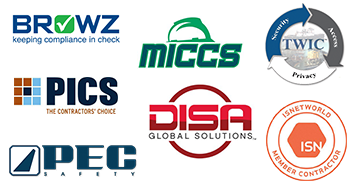Choosing Corrosion Resistant Resin: 11 Things You Should Know
Fiber Reinforced Polymers (FRP) use has grown tremendously over the past seven decades in oil and gas, chemical processing, pulp and paper, mining and minerals, wastewater treatment, water treatment, desalination, and power generation—to name a few. One of the primary reasons FRP has gained so much traction is that it has superior corrosion resistance when […]





